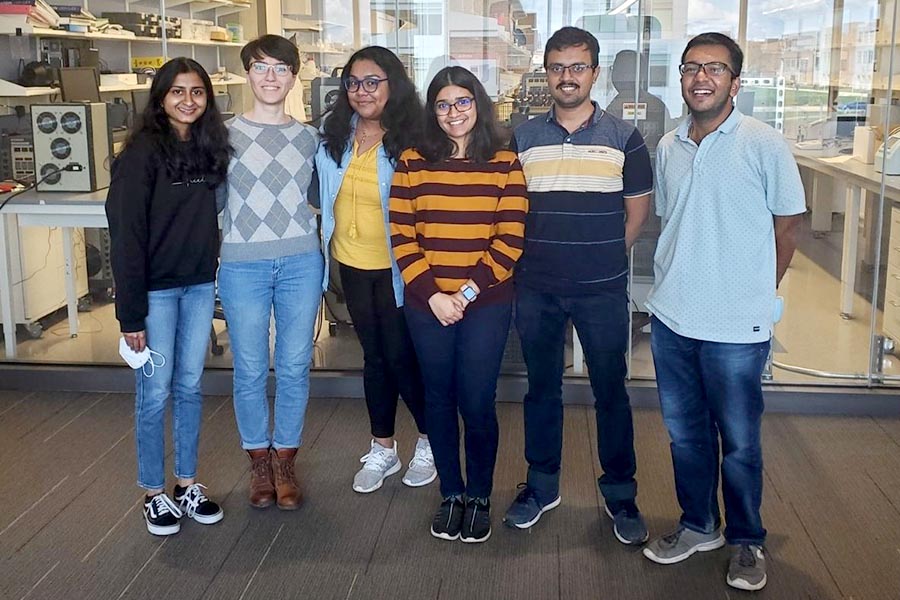Purdue named Outstanding Student Chapter of the Electrochemical Society

“In an unprecedented time where conventional communication modes were brought to a halt, we at the ECS Purdue Student Chapter utilized the power of virtual platforms and social media to build a global avenue for scientific exchange,” said Debanjali Chatterjee, president of the Purdue chapter.
Chatterjee is a Ph.D. student under Partha Mukherjee, professor of mechanical engineering. In their Energy and Transport Sciences Lab, they focus on making batteries better – specifically, solid-state batteries, a new technology that replaces the liquid electrolyte typically used in lithium-ion batteries with a solid layer of material.
The academic organization for battery researchers, the Electrochemical Society, has been in operation since 1902. But in 2020, they faced an unprecedented challenge: how do you engage the scientific community, when you can no longer meet in person?
“We needed an avenue for scientific discussion and exchange of ideas among my peers working in the same field,” said Chatterjee. “So we established a webinar series, and promoted it on Twitter and YouTube, which brought together people from around the world: US, Europe, Africa, Australia, and India, and more.”
It wasn’t just any webinar series: they focused on “Women in Electrochemical Sciences and Engineering,” inviting 14 prominent female researchers to share their expertise in the field. It also culminated in an invited article in ACS Energy Letters about the importance of including women in energy research. “Equity and justice are key aspects of the clean energy revolution,” said Chatterjee. “And as energy storage experts, we’re proud to play a role in that.”
For these accomplishments, the Electrochemical Society named Purdue its Outstanding Student Chapter for 2022, “for its dedication and commitment to the advancement of electrochemical and solid state science and engineering education.”
Purdue ECS is not done. They organized another webinar series in 2022 focused on “Modeling, Characterization & Analytics in Electrochemical Energy Systems,” and have more events planned in the future. They also have inherent motivation to collaborate on solutions. “Climate change is one of the most pressing problems of the modern world,” said Chatterjee. “We need sustainable energy sources, and electrochemical energy storage systems can be the frontrunners in this space.”
Chatterjee says that participating in the chapter has made a big impact on her. “Personally, the most exciting part for me is increasing awareness and outreach about my field of research on a global scale,” she said. “It feels great to see how the events we have conceptualized with Prof. Mukherjee and the rest of the team, have an impact on a global audience.”
Writer: Jared Pike, jaredpike@purdue.edu, 765-496-0374
Source: Debanjali Chatterjee, chatte22@purdue.edu
